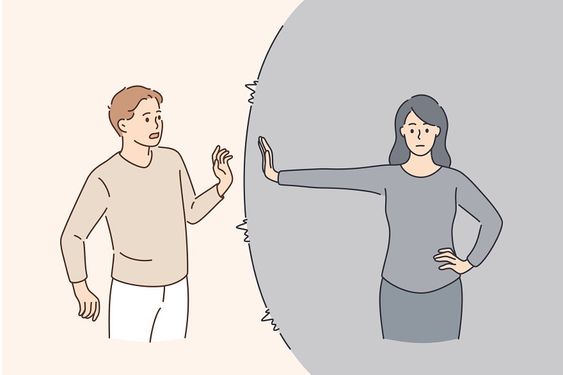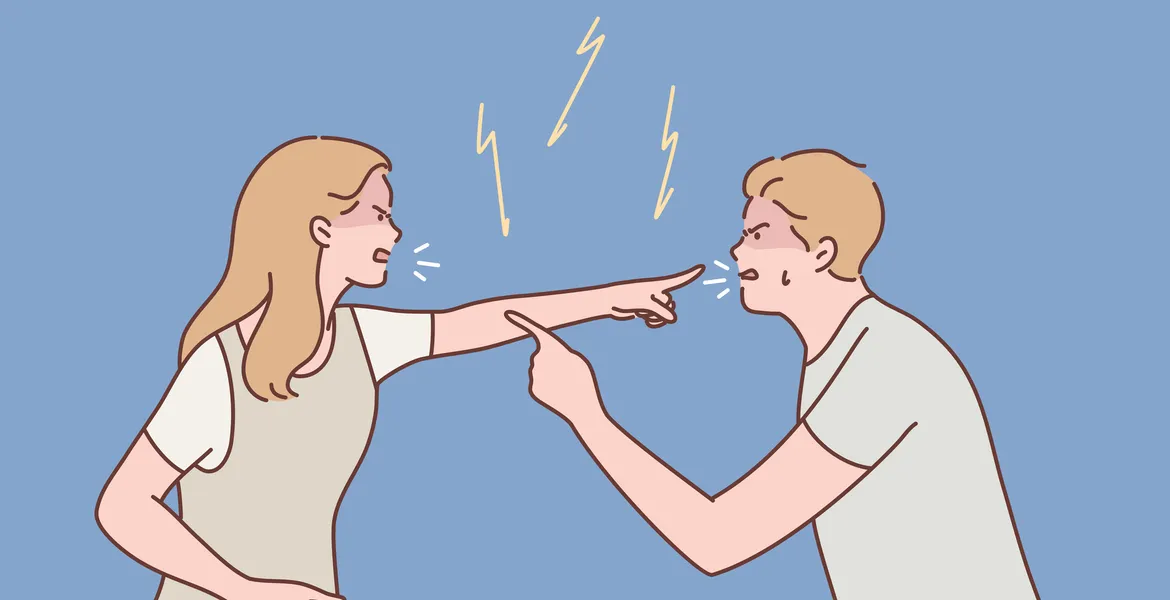
Why The Silent Treatment Is Worse Than You Think—Here’s How To Break The Cycle
We've all been there—caught in the middle of a heated argument with our partner where emotions are running high, and suddenly one of you goes completely silent. This silent treatment after an argument leaves you feeling frustrated, confused, or even hurt. While it's no secret that certain things shouldn't be said during an argument, what's often overlooked is how damaging the silent treatment can be. Even though the silent treatment might seem like the easy way out of a conversation that overwhelms you, it's toxic and a subtle form of manipulation.
 Photo from Alev Neto
Photo from Alev Neto
This tactic often pressures the other person to do something they don’t want to, like apologising first, rushing into the conversation before they’re ready, or even giving gifts or making gestures to 'earn' back attention.
 Photo from Getty Images
Photo from Getty Images
So why do people use the silent treatment?
- Avoidance
Sometimes people stay quiet because they're trying to dodge admitting something. Maybe they feel guilty, ashamed, or insecure, and just don't know how to express it. They could also be afraid of conflict or ejection, so silence feels safer.
- Communication
 Photo from Creative Markets
Photo from Creative Markets
Sometimes, a person might not know how to put their feelings into words, but they still want their partner to know they're upset. So, they shut down, hoping their silence speaks for itself.
- Punishment
 Photo from Pinterest
Photo from Pinterest
The silent treatment can also be a way to punish or control. If someone uses silence to get back at you or manipulate your behaviour, it crosses into emotional abuse.
How to handle the silent treatment
-
Don’t give in to the pressure
 Photo from Etsy
Photo from Etsy
It’s natural to want to break the silence when your partner shuts down, but don’t give in right away. You might find yourself apologising repeatedly or over-explaining just to get them to talk. The problem with this? It encourages their bad behaviour, making them more likely to use the silent treatment again in the future.
-
Explain how their silence affects you
 Photo from Giselle Dekel
Photo from Giselle Dekel
Maybe your partner doesn’t realise how hurtful their silence is. It’s important to calmly explain how it makes you feel, using 'I' statements. For example, “When you ignore me, I feel really unimportant. I’d rather you tell me what’s wrong than leave me guessing.” This keeps the focus on your feelings, instead of accusing them.
If you’re usually the one who shuts down, try saying something like, “I don’t know what to say right now,” or, “I’m feeling anxious and it’s hard to talk about this.”
-
Show you care about their feelings
 Photo from Pinterest
Photo from Pinterest
On the other way round, you will also need to ask your partner what they’re feeling and listen without jumping to defend yourself. Acknowledging their emotions shows that you care, even if you don’t agree with their perspective. If they respond aggressively, take a step back until things cool down.
-
Don’t fight fire with fire
 Photo from Pinterest
Photo from Pinterest
If you both go silent, nothing gets resolved. It’s fine to take some space if you're angry, but let your partner know. A simple “I need a break to calm down and think” tells them you're not ignoring them, just taking time to cool off. Then, you can talk things through when both of you are in a better place emotionally.
-
Stay away from unhelpful comments
 Photo from Aleksei Morozov/Getty Images
Photo from Aleksei Morozov/Getty Images
Avoid pushing your partner’s buttons by saying things like, “You never talk to me!” or “You’re just walking away like always!” These comments will only make things worse. Stay calm and keep communication as open as possible.
-
Talk about better ways to handle disagreements calmly and productively
 Photo from Sacrée Frangine
Photo from Sacrée Frangine
While it’s important to express how you’re feeling in the moment, it’s also good to plan better ways to handle future disagreements. Agree to use phrases like “I need a moment” instead of shutting down completely. Give yourselves some space, then revisit the topic when you’re ready.
If your partner continues to give you the silent treatment despite your efforts, it might be time to rethink the relationship. A healthy partnership is built on working together to solve problems, not shutting down or playing mind games.





